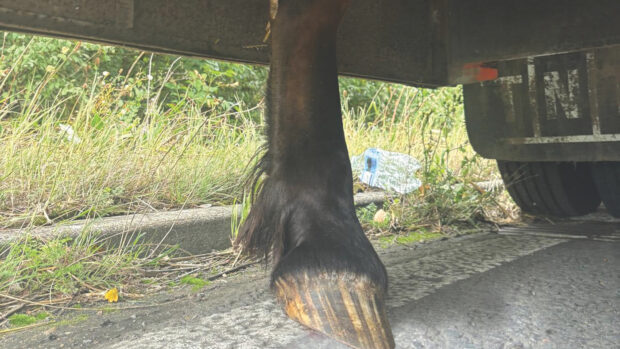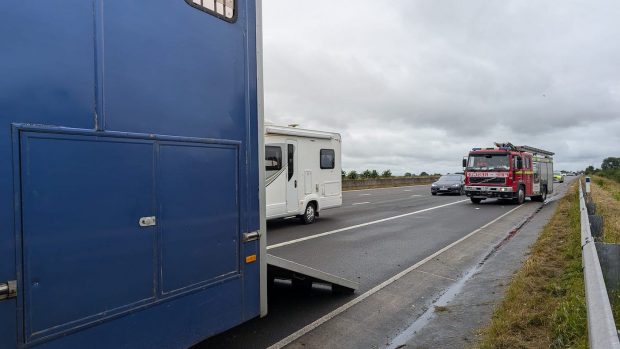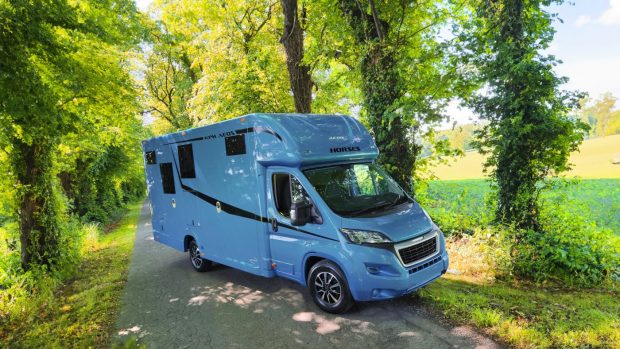International transporter Bruce Wofford believes that most bad travellers are made, not born.
“Fifty per cent of the problems are caused by car drivers towing trailers who don’t look far enough ahead,” he maintains. “This means they can’t plan far enough ahead and can’t slow down smoothly.
“You should be able to put a box of loose eggs on the floor and arrive with them unbroken. This means looking ahead, changing gear smoothly and making changes within your speed smoothly.
“It’s vital to schedule plenty of time for loading and for your journey so that you’re not under pressure. We have to meet schedules, but if someone asks how quickly we can get somewhere, I say that I’m not a racing driver.”
Bruce, who runs the Staffordshire-based Wofford International Ltd with his wife, Carolyn, finds that horses have individual preferences for travelling positions. The common denominator is that they must always have enough room.
“If we’re travelling a show jumper in a racing box, we’d give him a stall and a half,” he explained. “With the little Thoroughbreds, you’d travel them a bit tighter so they can’t rattle around and damage themselves.
“But whatever sort of horse or pony you’re transporting, it needs to have enough room to spread its legs to balance itself.”
He likes a horse to be tied up so that his head is not pulled at when he stands at rest, but with the rope no longer than is needed to prevent him reaching his neighbour.
He always prefers to provide a haynet to keep a horse occupied, and suggests travelling an inexperienced horse with a calm, experienced one when possible to give him confidence.
Bruce prefers rubber matting with shavings on top to granalistic flooring, as his experience of the latter is that it is “fine when it is new, but after six months of hard wear you get bubbles in it that the horses trip on.”
He has also found that the designs of some roof vents cause a strobe effect when passing under road lights, which can upset many horses.
Tips to help nervous travellers
- Does your lorry or trailer have side windows? Most horses are happier if they can see out.
- Instead of putting clean bedding on the floor, use some from the horse’s own stable. Some handlers find that horses are more likely to enter a vehicle which smells familiar.
- If you are travelling one horse in a single trailer, is he happier if you remove the centre partition? This gives him more freedom to choose his own travelling position. Use two lead ropes, one to each tying-up ring to make sure that he cannot turn round.
- Is the vehicle light and inviting? Many horses will understandably be reluctant to walk into the unknown.
- Don’t scold your horse for sniffing or pawing the ramp before he walks on it. International transporter John Boden says that this is his way of testing whether it is safe to walk on.




